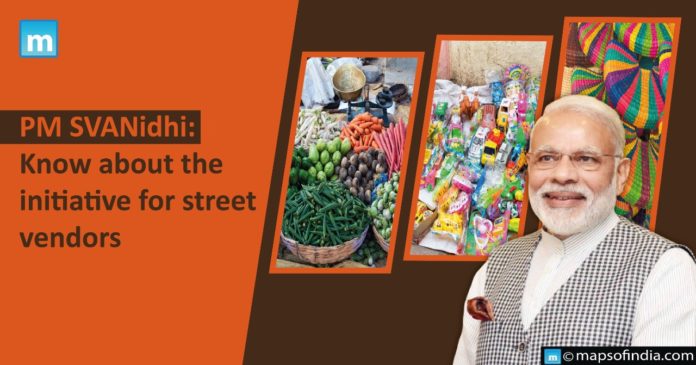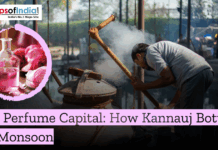As part of the government efforts to provide street sellers with affordable loans and mitigate the impact of COVID-19, the Urban Affairs ministry launched PM SVANidhi Scheme during the announcement of the Economic stimulus. PM SVANidhi Abbreviation stands for Street Vendors Atmanirbhar Nidhi. This plan improves the living conditions of local vendors reliant on their day-to-day earnings.
Before its introduction, the Scheme was the component of the Atmanirbhar Bharat Abhiyan’s Second Economic Stimulus, which the Finance minister announced during the COVID-19 Outbreak. The initiative would aid vendors, hawkers, and persons dealing in textiles, clothes, artisan items, barbers shops, laundry services, and other businesses.
Mentioned below are its key Features:
Credit facility
- The sellers can obtain a cash flow loan of up to Rs. 10,000, repayable monthly instalments over a year. The loans would have no collateral.
- Because of their street-level presence and proximity to the urban poor, street vendors, Microfinance Institutions, Non-Banking Financial Companies, and Self Help Groups have been authorised for the first time in a plan for the urban poor.
- There will be no charge for repaying the loan early.
- Early repayment (or resettlement) is the payment of a debt or loan before the due date. Many banks and lenders impose penalties for early loan repayment.
Interest Subsidy
- On timely/early loan repayment, recipients will get a 7% annual interest subsidy via direct benefit transfer applied to their bank accounts every six months.
Credit limit enhancement
- Upon timely or early loan repayment, the credit limit can be raised. So, for example, if a street vendor repays the payment on schedule or earlier, they will be entitled to a more significant term loan, such as Rs. 20,000.
Encourage digital payments
- This system encourages street vendors to conduct digital transactions by offering them monthly cash.
Focus on capacity building
- The MoHUA, in partnership with state governments, initiated a quality improvement and financial literacy programme for all stakeholders, as well as Information, Education, and Communication (IEC) initiatives around the country, in June, and lending began in July.
Responsibility of Urban Local Bodies (ULBs)
- To ensure the effective implementation of the scheme, urban local authorities played a significant role in allocating funds to local vendors in need.
E-governance
- To guarantee successful execution and accountability, a digital platform with a web portal/mobile app is being built to govern the scheme with an end-to-end solution.
- This platform will seamlessly link the web portal/mobile app with SIDBI’s UdyamiMitra portal for credit risk management practices and MoHUA’s PAiSA portal for interest subsidy administration.
- It will aid in the incorporation of vendors into the official financial system.
Final Thoughts
The scheme’s loans would assist merchants who have been left without income due to the Covid-19 and the shutdown. Despite several schemes for street sellers, there are massive differences in implementation, identification, awareness, and accessibility to various projects that should be addressed soon.
They should be provided with maternity reimbursements, accident compensation, natural death indemnity, education support for children pursuing higher education, and a pension during a crisis.





